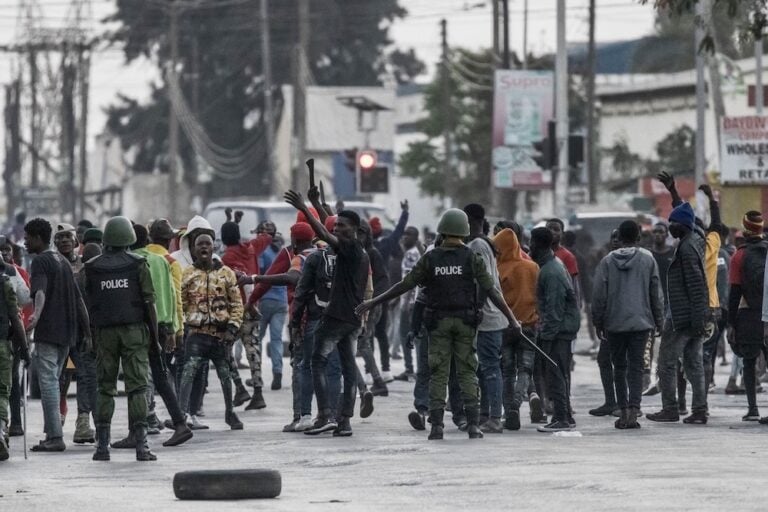(MISA/IFEX) -The Zambia Independent Media Association (ZIMA) reports that on 19 December 1997 three journalists working for the privately-owned newspapers “The Post” and “The Sun” were barred from covering an army graduation ceremony officiated by President Frederick Chiluba in Lusaka. Reporter Mukalya Nampito and photo-journalist Sheikh Chifuwe of “The Post”, and reporter Sandra Mubiana of […]
(MISA/IFEX) -The Zambia Independent Media Association (ZIMA)
reports that on 19 December 1997 three journalists working for
the privately-owned newspapers “The Post” and “The Sun” were
barred from covering an army graduation ceremony officiated by
President Frederick Chiluba in Lusaka. Reporter Mukalya Nampito
and photo-journalist Sheikh Chifuwe of “The Post”, and reporter
Sandra Mubiana of “The Sun”, were reportedly prevented from
covering the graduation of senior military officers from the
Zambia Defence Services Command and Staff College by soldiers
manning the gates. The journalists were told that “only the
government-run media [were] invited” to cover the event. An
attempt by the journalists to defy the banning order proved
futile.
Nampito told ZIMA on 23 December: “The treatment we received was
very unfair… it is indicative of the state of the relationship
between the private media and the army, where we (journalists)
are regarded as enemies.” “The Sun” editor Mufalo Liswaniso later
remarked on 26 December: “The incident gives a very bad
impression of the army’s perception of the private media where
they are all assumed to be anti-government.” “The Sun” is owned
by Sikota Wina, chairman of the ruling Multiparty Movement for
Democracy (MMD).
In a statement issued 22 December, ZIMA chairman David Simpson
described the act as “discriminatory,” adding that “journalists
from the two organisations appear to have been singled out for
harassment for working for non-government owned newspapers.” He
further observed that “such blatant discriminatory treatment of
journalists is censorship of the worst order and raises
unnecessary suspicion of collusion between journalists from the
state-owned media and the government, where they are rewarded for
supposedly ‘towing the line’ and not being ‘too critical’.”


